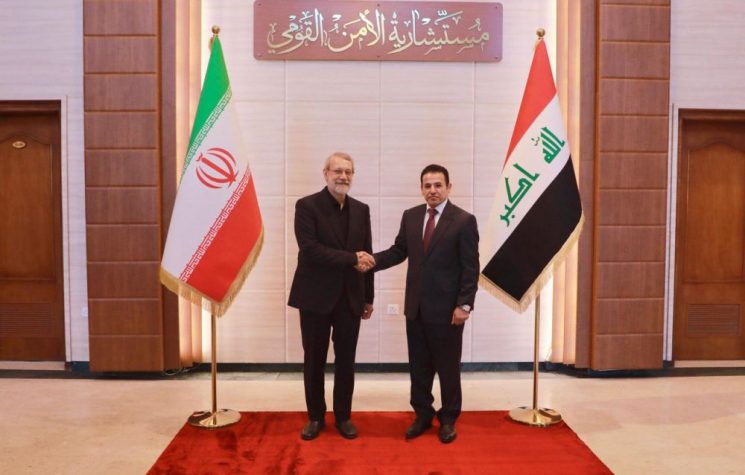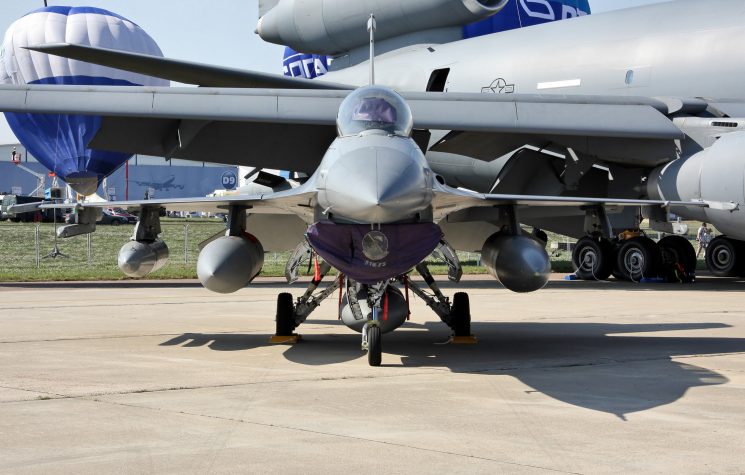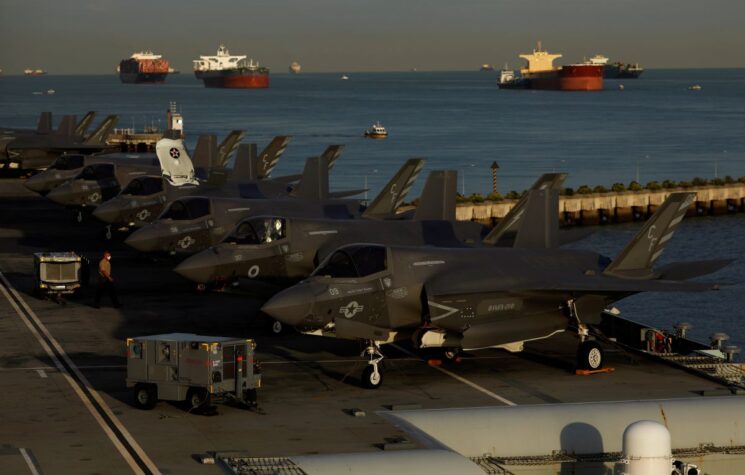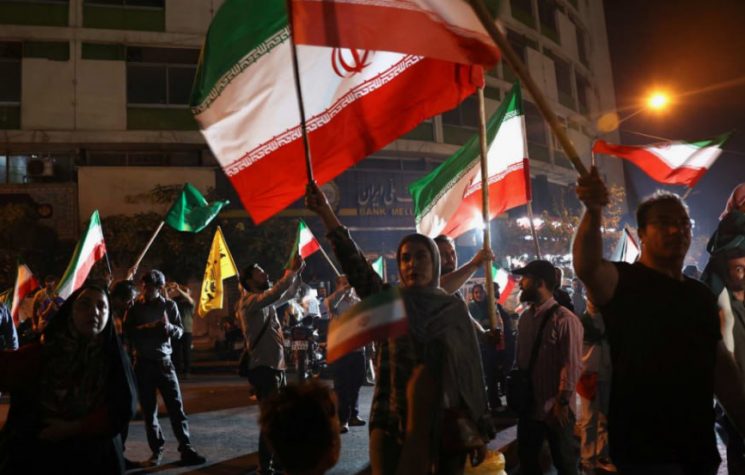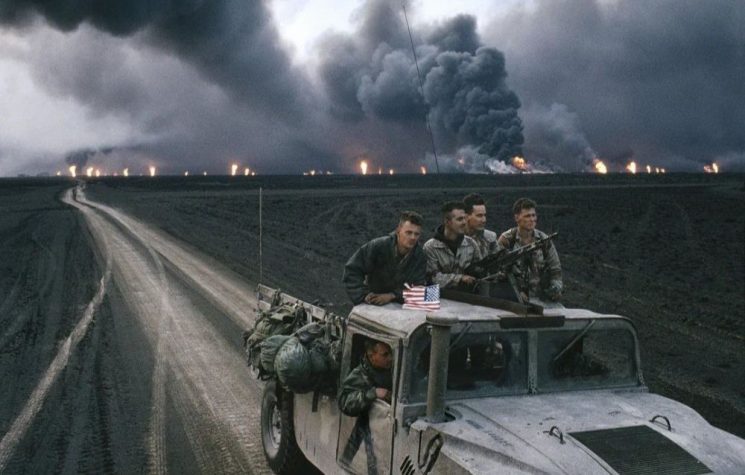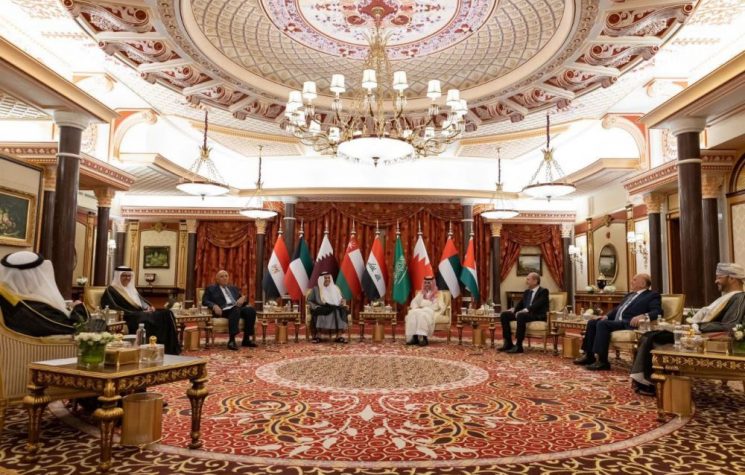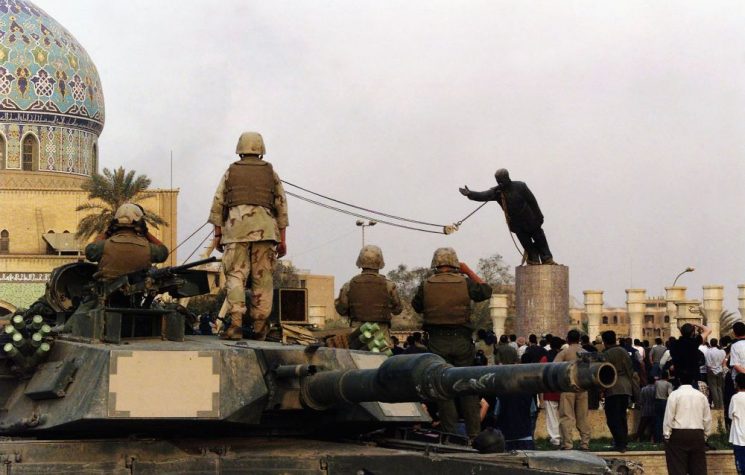Pope Francis was absolutely right that peace is more powerful than war — but military confrontation is popular and profitable.
In Mosul on 7 March, during his visit to war-shattered Iraq, Pope Francis said he reaffirmed his conviction that “peace is more powerful than war.” Coincidentally and ironically, on the same day the Pentagon war machine sent a flight of B-52 nuclear bombers to menace Iran, which seems to be next on the Washington / Israel destruction list. The U.S. military’s Central Command then declared that the operation was intended “to deter aggression and reassure partners and allies of the U.S. military’s commitment to security in the region” but it is not known if the Pope was comfortable with such sentiments.
The U.S. Air Force Times published a photograph of one of the nuclear bombers showing a decal on its nose naming it “Wham Bam II” — a good indication of the ethos and policies of the Biden administration which on 27 February whammed and bammed an encampment in Northern Syria, a country with which it is not at war, at least officially. The operation was said to be retaliation for a rocket attack on a U.S. base in Iraq on February 15.
Associated Press reported that the U.S. attacks “took out facilities that housed valuable ‘capabilities’ used by Iranian-backed militia groups to attack American and allied forces in Iraq… John Kirby, the Pentagon’s chief spokesperson, said members of Congress were notified before the strikes as two Air Force F-15E aircraft launched seven missiles, destroying nine facilities and heavily damaging two others, rendering both ‘functionally destroyed.’ He said the facilities, at ‘entry control points’ on the border, had been used by militia groups the U.S. deems responsible for recent attacks against U.S. interests in Iraq.”
When President Biden was asked what message he was sending concerning his attack on Syria he replied he was warning Iran that “You can’t act with impunity. Be careful.”
It is regrettable that President Biden has continued the policies of his predecessors regarding wham bam attacks around the world, and it is intriguing, as pointed out by Jonah Shepp in the New York Magazine, that “Biden and Vice-President Kamala Harris… are on the record questioning the legal basis of airstrikes that former president Donald Trump ordered in 2017 and 2019.”
There is a compelling legal case against such attacks, as indicated by Democratic Senator Tim Kaine’s statement that “The American people deserve to hear the Administration’s rationale for these strikes and its legal justification for acting without coming to Congress. Offensive military action without congressional approval is not constitutional, absent extraordinary circumstances.” But there is an ethical angle, too, and many of us thought that Uncle Joe Biden, that devout Catholic, would pay more attention than his immediate predecessor to the moral aspects of airstrike whamming and bamming in foreign countries. It was hoped that he would heed the “Message to the 46th President of the United States of America, Joseph R Biden” on Inauguration Day in which Pope Francis asked their Deity “to guide [Biden’s] efforts to foster understanding, reconciliation and peace within the United States and among the nations of the world in order to advance the universal common good.”
There is no doubt that Joseph Biden is doing a good job at home in helping America’s poorest and most disadvantaged citizens, and for this he deserves credit. On 11 March he declared that “Unity is what we do together as fellow Americans” which is a laudable indication that he accepted the Pope’s adjuration about domestic reconciliation and peace.
Unfortunately Uncle Joe is selective in attending to advice from people who would like to see him embark on a policy of reconciliation and peace among the nations of the world, and although the White House statement on the Pope’s Iraq visit did mention the Papal phrase about peace being more powerful than war there seems to be no possibility that the Biden administration will stop sending nuclear bombers round the world to threaten nations that in some fashion upset the Washington Establishment. Neither will it cease the wham bam airstrikes such as the one on Syria which the Pentagon announced was intended to send “an unambiguous message: President Biden will act to protect American and Coalition personnel. At the same time, we have acted in a deliberate manner that aims to de-escalate the overall situation in both eastern Syria and Iraq.”
It is not clear how a seven rocket airstrike on Syria could “de-escalate” any situation. And other U.S. military operations around the world continue to emphasise confrontation rather than de-escalation.
On the day the Pope left Iraq, having stressed his preference for peace over war, the Pentagon sent a B-1 bomber to land on an airbase in the Arctic circle in order to demonstrate that such operations “in forward locations makes us the rapid, resilient and ready force we need to be.” The phrase “forward location” does not appear in the DOD Dictionary of Military Terms, but “forward presence” is defined as “Maintaining forward-deployed or stationed forces overseas to demonstrate national resolve, strengthen alliances, dissuade potential adversaries, and enhance the ability to respond quickly to contingencies.” It could hardly be more obvious that the Pentagon is intent on keeping up its level of confrontation by indulging in coat-trailing military provocations from the Arctic to the South China Sea, and that Uncle Joe Biden is falling in with the policies described in the January 2018 National Defence Strategy.
As stated by the Pentagon, its programme “builds on the administration’s National Security Strategy” of Biden’s predecessor and considers “the primary challenge facing the Defence Department and the Joint Force is the erosion of U.S. military advantage vis-a-vis China and Russia, which, if unaddressed, could ultimately undermine our ability to deter aggression and coercion and imperil the free and open order that we seek to underwrite with our alliance constellation.” The Strategy also singles out Iran and North Korea for criticism and threats.
Three years ago the Pentagon named its enemies and the Washington establishment rejected the view that there should be compromise or dialogue. The preference was for unrelenting intimidation and colossal military expenditure, both of which are being maintained by the Biden administration. On March 13 Medea Benjamin and Nicolas Davies of Codepink for Peace suggested that “in the longer term, Biden should look for deeper cuts in Pentagon spending, as in Representative Barbara Lee’s bill to cut $350 billion per year from the U.S. military budget, to free up resources we sorely need to invest in health care, education, clean energy and modern infrastructure,” but unfortunately there is little Congressional support because the military-industrial complex has made sure that weapons manufacturers are spread country-wide, employing countless thousands and making it very tough for any legislator to place principles before votes.
Likewise the words of Pope Francis are falling on stony ground. He was absolutely right that peace is more powerful than war — but military confrontation is popular and profitable and we can be assured that the Wham Bam spirit will flourish. Airstrikes and nuclear bomber provocations are not intended to be peace signals, and they will continue to ramp up tension.












